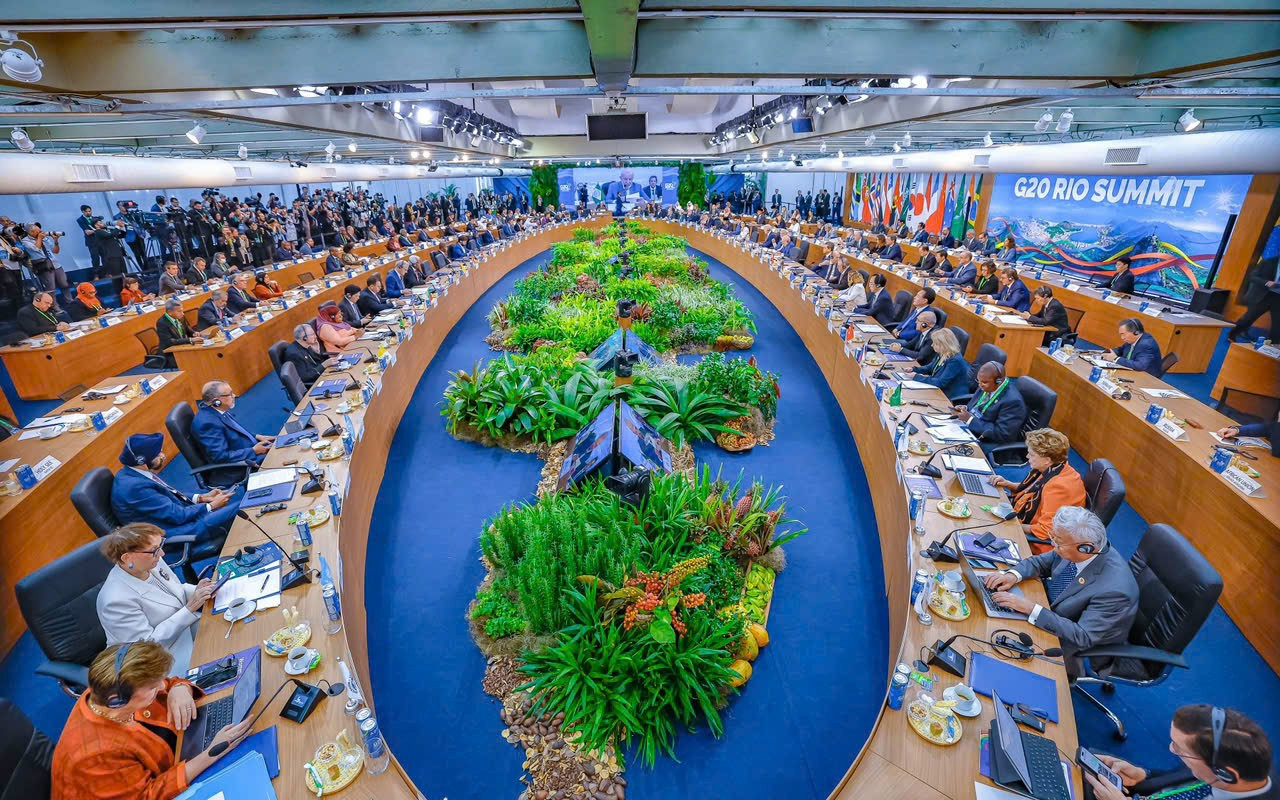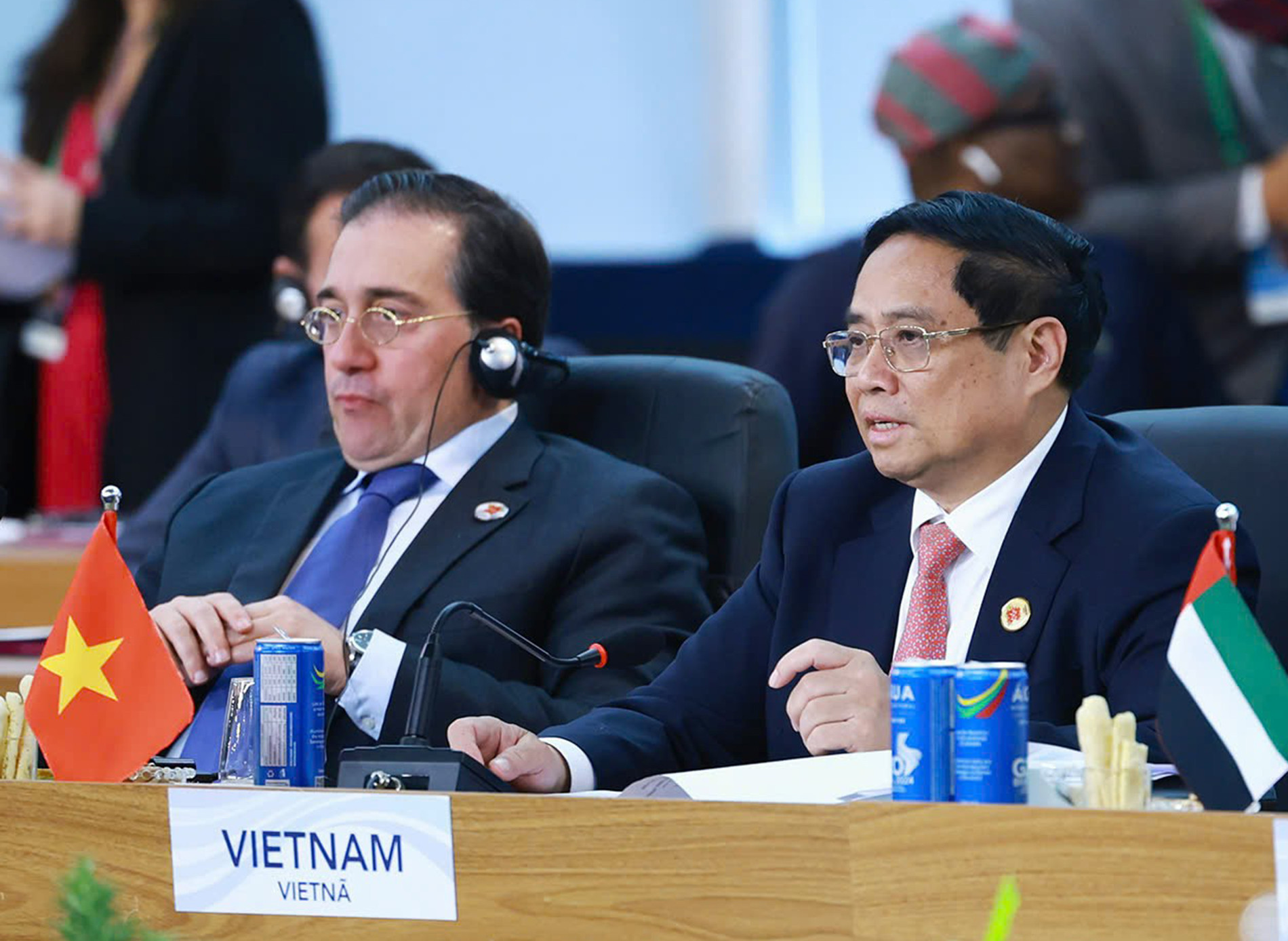
Citing the famous proverb, “We do not inherit the Earth from our ancestors; we borrow it from future generations,” Prime Minister Pham Minh Chinh stressed that every action taken today will shape the destiny of tomorrow’s generations.
On November 19 (local time), the 2024 G20 Summit in Rio de Janeiro, Brazil, continued with discussions on sustainable development and energy transition, chaired by Brazilian President Luiz Inácio Lula da Silva. Prime Minister Pham Minh Chinh attended and delivered a speech during the session.
Contributing to a greener, cleaner, sustainable world
During the session, leaders acknowledged that progress toward achieving the United Nations’ Sustainable Development Goals (SDGs) has been slow. They highlighted the challenges faced by developing nations in ensuring a fair energy transition. Discussions also centered on reducing economic inequality, enhancing social welfare, and protecting the environment. Green finance policies and international resource mobilization to support developing countries received widespread backing.
The summit underscored the urgency of increasing financial resources for global energy transition, emphasizing investment diversification in technology and infrastructure. Public-private cooperation was highlighted as critical, particularly for developing nations.
In his address, Prime Minister Pham Minh Chinh reaffirmed Vietnam’s consistent and unwavering commitment to sustainable development, asserting that Vietnam prioritizes social welfare, progress, equality, and environmental protection over mere economic growth.
Quoting the well-known proverb, he emphasized that actions taken today will profoundly affect future generations. Vietnam, he affirmed, is fully committed to achieving net-zero emissions by 2050 and contributing to a greener, cleaner, and more sustainable world for future generations.

Vietnam’s three proposals
To accelerate progress on the SDGs, Prime Minister Chinh presented three key proposals:
1. Driving Key Transformations:
PM Chinh called for focus on three pivotal transitions—digital transformation, green transformation, and energy transition. He highlighted digital transformation as a foundational requirement, green transformation as a guiding principle, and energy transition as a driving force for sustainable development and carbon reduction. He emphasized the vital role of science, technology, and innovation in these transformations, urging the G20 to lead in resource mobilization, experience sharing, and technology transfer.
2. Investing in People:
The Prime Minister advocated for prioritizing people as the central focus, purpose, and key resource for development. He applauded Brazil’s efforts to address inequalities, especially concerning women and children, and to promote inclusive social and economic development. These measures, he said, are essential for sustainable growth and energy transition that benefits all.
3. Fostering Innovative Financial Cooperation:
PM Chinh called for innovative financial models and effective investments, particularly through public-private partnerships, to unlock and utilize resources for sustainability and energy transition.
The Prime Minister also announced Vietnam’s hosting of the P4G Summit in April 2025, reaffirming its commitment to global sustainable development. This announcement was warmly received by the G20 participants.
G20’s unified vision
PM Chinh’s proactive engagement was praised by G20 nations and guest countries, reflecting Vietnam’s growing stature and global influence. Under Brazil’s leadership, the summit concluded with a joint declaration emphasizing international solidarity and multilateralism in tackling poverty and advancing sustainable development.
At the closing ceremony, President Lula handed the ceremonial gavel to South African President Cyril Ramaphosa, marking South Africa’s assumption of the G20 presidency for 2025, under the theme “Fostering Solidarity, Equality, and Sustainable Development.”
The 2024 G20 Summit concluded successfully, spotlighting the priorities of the Global South and advancing critical agendas on poverty alleviation, global governance, energy planning, and biodiversity preservation.
Thu Hang




